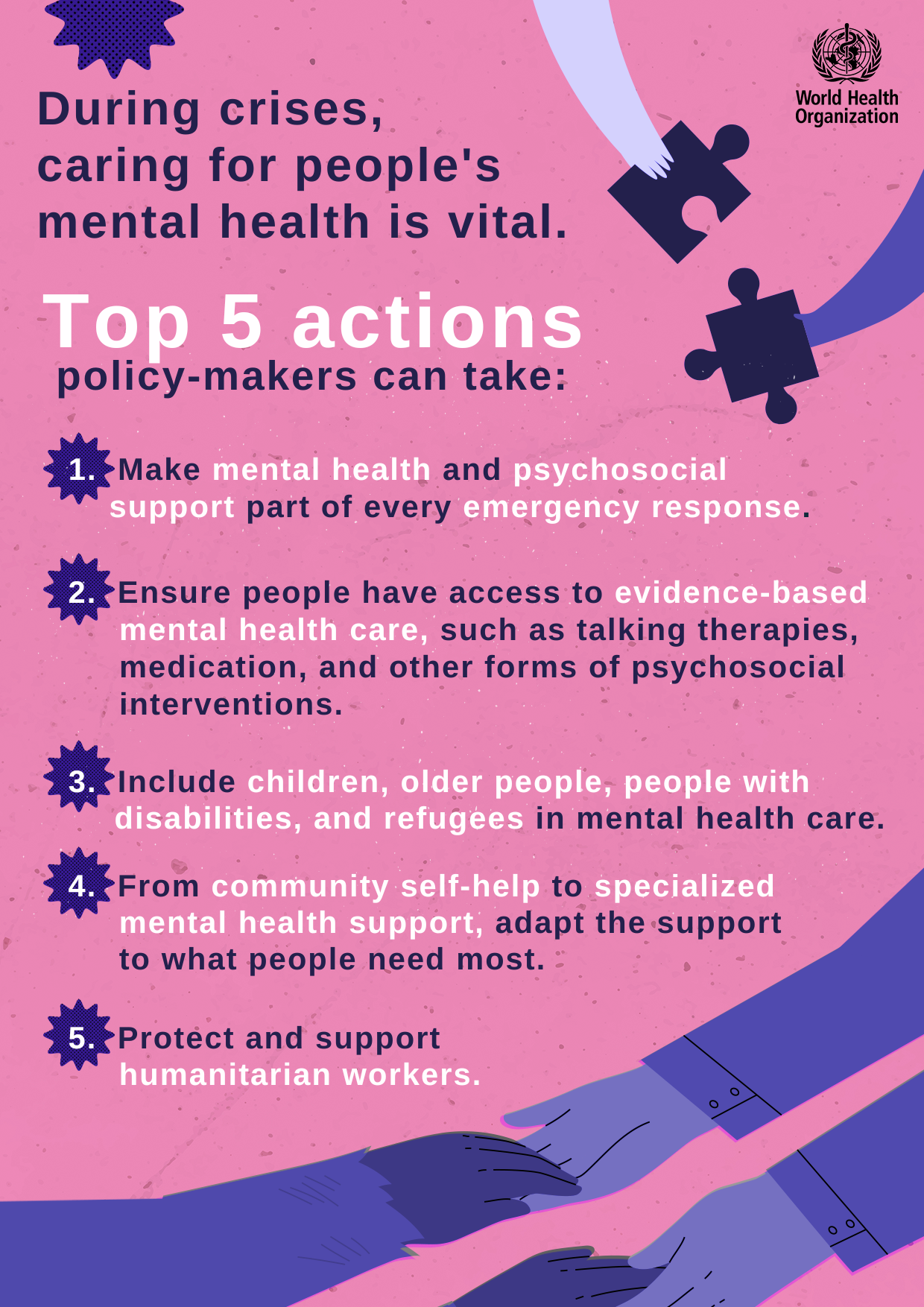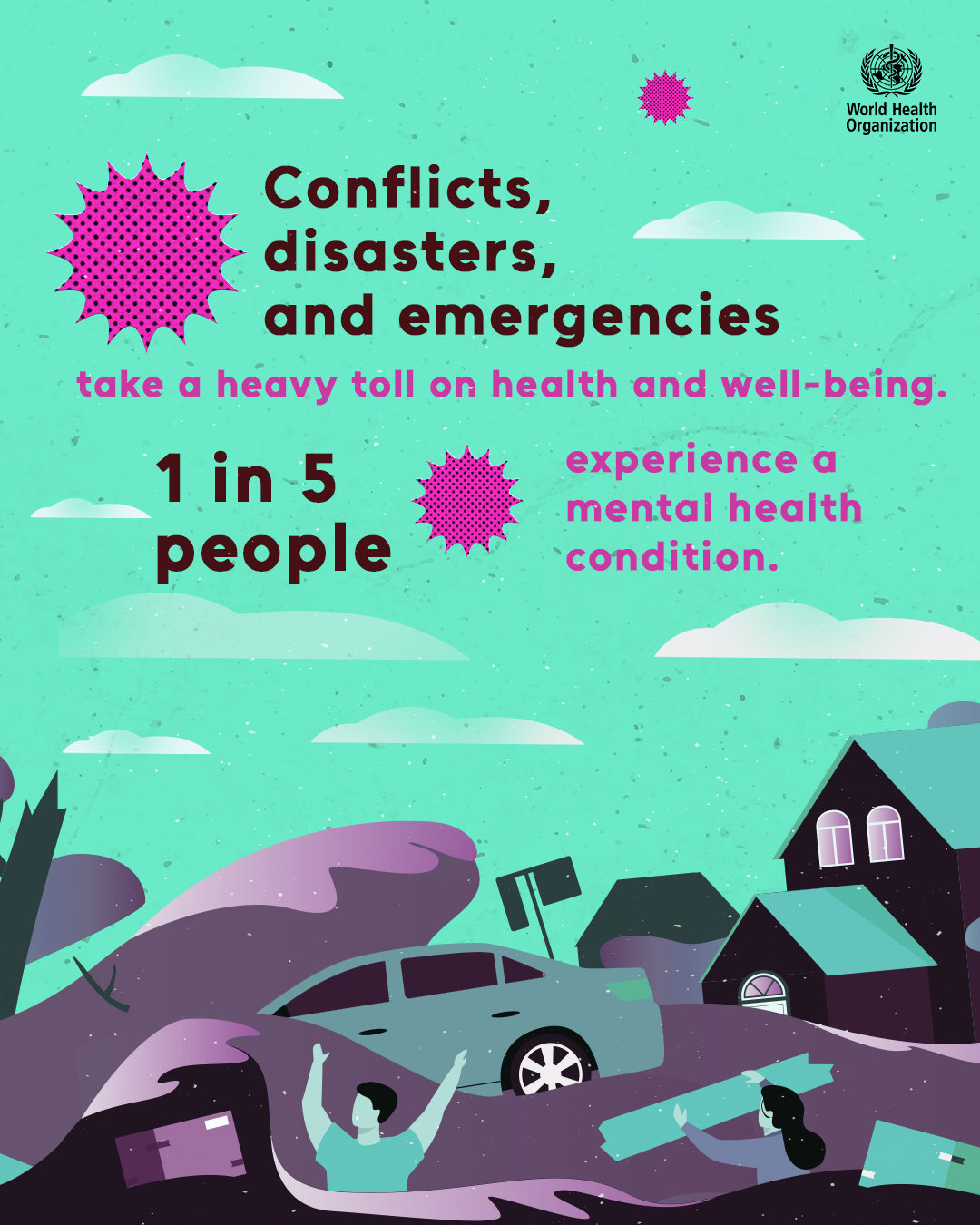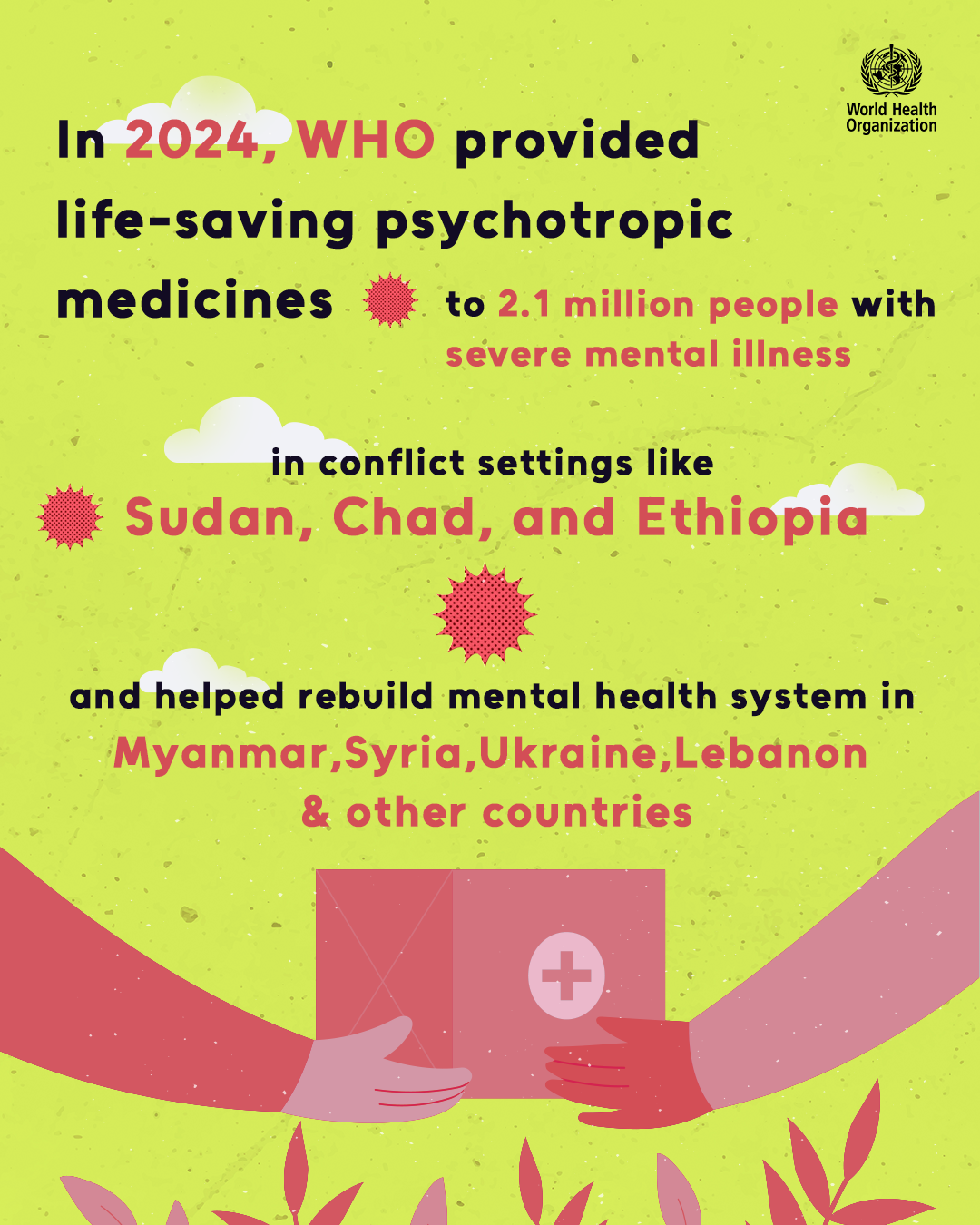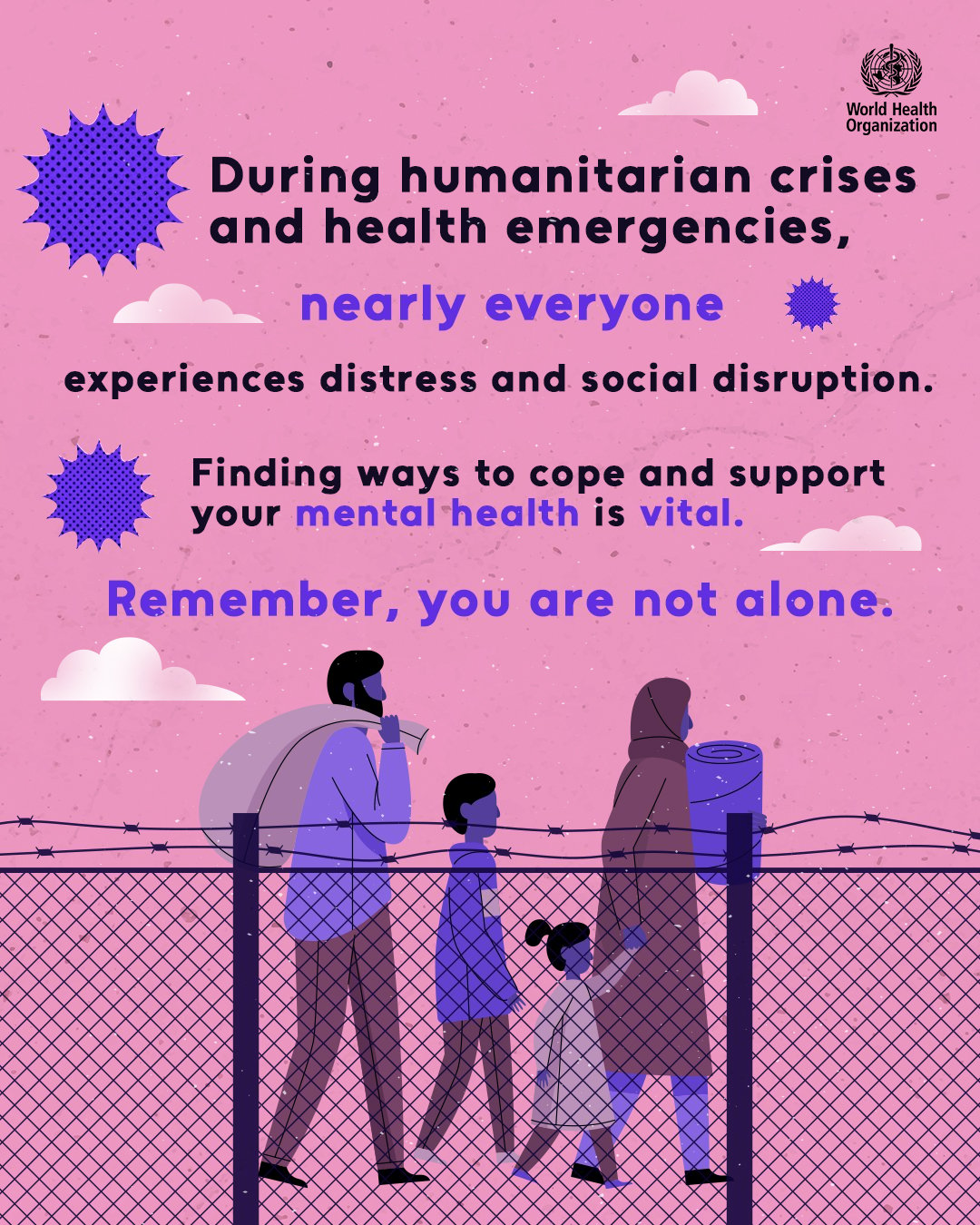KEY MESSAGE
Investing in mental health is investing in recovery:
Investing in mental health and psychosocial support helps families, communities, and economies recover from crises, build long-term resilience, and shape stronger health systems.
Protect your mental health:
Prioritize your mental health by staying connected, being physically active, and following routines. Minimize alcohol use, engage in meaningful and enjoyable activities, and seek support from trusted friends, family, or health professionals
Mental health is essential for rebuilding lives:
Beyond food, water, and medicine, survivors also need mental health and psychosocial support to cope, recover, and rebuild
Mental health care saves lives:
The Mental Health and Psychosocial Support Minimum Service Package offers proven solutions in emergencies, ensuring timely, coordinated care that reduces suffering, strengthens well-being, and builds more inclusive responses.
Promoting mental well-being through various approaches:
A layered approach – from self-help tools and Psychological First Aid to specialized mental health services – ensures accessible, efficient, and responsive support for all.
Integrating mental health strengthens emergency response:
Making mental health and psychosocial support a core part of emergency response not only saves lives but also strengthens communities and health systems for the future
Inclusive mental health care leads to stronger communities:
Inclusive support must reach children, older people, persons with disabilities, refugees, and people with pre-existing mental health conditions, including those in institutions. Addressing barriers such as stigma, discrimination, costs, and language is essential.

Inclusive support must reach children, older people, persons with disabilities, refugees, and people with pre-existing mental health conditions, including those in institutions. Addressing barriers such as stigma, discrimination, costs, and language is essential.
Protect the well-being of humanitarian workers:
Humanitarian workers face extreme stress and are often directly affected by the crises they respond to. Organizations should provide rest, supervision, peer support, and workplace mental health programmes to sustain an effective humanitarian response.
EVENTS: On Friday, 10 October 2025 starting at14:00 CET / 12:00 UTC, a webinar with the World Health Organization, World Federation for Mental Health, United Nations High Commissioner for Refugees, international non-governmental organizations, civil society, and donors, with insights on concrete actions and strategies to improve access to mental health and psychosocial support before, during, and after humanitarian emergencies. To join WMHD 2025 webinar, please register!
Humanitarian workers face extreme stress and are often directly affected by the crises they respond to. Organizations should provide rest, supervision, peer support, and workplace mental health programmes to sustain an effective humanitarian response.
At UN Geneva; This event is part of a two-day conference organized by European Academy of Occupational Health Psychology (EAOHP) at the ILO, aimed at sharing knowledge, experiences, and good practices in regulation and policy initiatives.








No comments:
Post a Comment